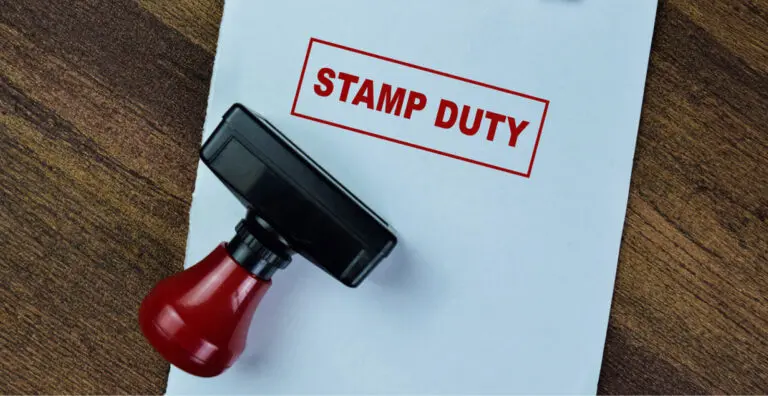Stamp duty represents a pivotal element in the legal framework, serving as a form of taxation on specific documents to ensure their validity and enforceability. Governed initially by Ordinance No. 22 of 1909, the regulation of stamp duty underwent significant transformations. These culminated in the enactment of the Stamp Duty Act No. 43 of 1982, which replaced the earlier ordinance on January 1, 1983. This article provides a detailed exploration of the rules, exemptions, and judicial interpretations concerning the stamping of documents in legal proceedings, reflecting its implications in both civil and criminal contexts.
Legislative Framework
Historical Background
The Ordinance No. 22 of 1909 laid the groundwork for stamp duty regulations, which remained effective until the end of 1982. With the enactment of the Stamp Duty Act No. 43 of 1982, a modernized legal regime came into effect, specifying the imposition of stamp duty on documents filed in courts and other legal instruments. Section 2 of the Act prescribes a duty on every document filed or presented in civil proceedings, applicable across courts such as the Supreme Court, Court of Appeal, District Courts, and High Court in Admiralty proceedings.
Scope of Stamp Duty
The Act mandates that only the first ten documents filed in a case are subject to stamp duty, with different rates applicable based on the document’s nature or class. However, certain documents are explicitly exempt under the Act, as discussed later.
Judicial Interpretation and Legal Precedents
Applicability of Stamp Duty
The question of whether specific documents, such as judgments or decrees, attract stamp duty has been addressed in several landmark cases. In Volanka Limited v. Attorney General, the Court of Appeal ruled that judgments and decrees issued by the court do not require stamp duty. The rationale was that these documents are integral to the judicial process and do not fall within the category of documents filed or presented by parties to a case.
Rectifying Insufficient Stamping
Judicial opinions consistently hold that insufficient stamping is not a fatal defect. Courts are required to provide litigants with an opportunity to rectify such deficiencies. For instance, in Sandanam v. Jamaldeen, the court emphasized the importance of allowing plaintiffs to supply missing stamps before rejecting a pleading. Similarly, in De Silva v. Hassanally, it was held that irregularities arising from insufficient stamping could be cured if the requisite stamp duty is subsequently provided.
Exemptions to Stamp Duty
The Stamp Duty Act enumerates specific exemptions to ensure accessibility and fairness in legal proceedings. These exemptions include:
Documents in Criminal Proceedings
Documents filed in Magistrates’ Courts, primary courts, or other courts for criminal proceedings are exempt from stamp duty.
Public Officers
Documents filed by public officers in their official capacity are excluded from stamp duty, ensuring smooth administrative and judicial processes.
Legal Aid Cases
Under the Legal Aid Law No. 27 of 1978, documents filed on behalf of individuals receiving legal aid are exempt. This provision underscores the commitment to equitable access to justice for economically disadvantaged individuals.
Specific Legal Proceedings
- Motor Accident Cases: All documents filed in connection with claims for damages resulting from motor vehicle accidents are exempt.
- Partition Cases: Pleadings and other documents in partition actions are exempt, including appeals and revisions.
- Habeas Corpus Applications: Applications and related documents filed for writs of habeas corpus are exempt from duty.
Stamping Requirements for Specific Documents
Affidavits
Affidavits, being integral to legal proceedings, are typically chargeable with stamp duty. However, exceptions apply when affidavits are:
- Made at the request of a public officer.
- Filed in compliance with statutory requirements.
In Sarath Perera Nanayakkara v. University of Peradeniya, the court clarified that exemptions apply not only at the time of making the affidavit but also during its subsequent use for the stated purposes.
Pleadings
Section 39 of the Civil Procedure Code mandates that actions be initiated with duly stamped pleadings. The Code also provides mechanisms for rectifying deficiencies in stamping. If a plaint or answer is insufficiently stamped, courts must provide an opportunity to supply the necessary stamps before rejecting the pleading.
Notices of Appeal
Under Section 755 of the Civil Procedure Code, notices of appeal must be duly stamped. However, petitions of appeal are exempt. The case of Kithsiri v. Weerasena highlights that non-stamping or insufficient stamping at the time of presentation is not fatal, provided the deficiency is remedied promptly.
Procedural Safeguards and Judicial Guidance
The legal framework and case law ensure that procedural deficiencies in stamping do not obstruct substantive justice. Courts are obligated to:
- Notify parties of insufficient stamping.
- Allow time for rectifying deficiencies.
- Avoid rejecting documents solely on procedural grounds unless explicitly mandated by law.
These principles were reaffirmed in Yousoob Mohomed and Another v. Indian Overseas Bank, where it was held that courts must demand the requisite stamp duty rather than dismiss the action outright.
Conclusion
Stamp duty regulations represent a crucial balance between fiscal policy and judicial fairness. While compliance with stamping requirements is essential, judicial interpretations emphasize that procedural lapses should not unduly prejudice litigants’ rights. The Privy Council’s observation in Karunapejjalage Bilinda v. Wellawa Attadassi Thero encapsulates this ethos: “It would be an unfortunate and unintended result if a litigant were debarred from pursuing justice due to a minor, rectifiable error in stamping.”
By upholding principles of equity and accessibility, stamp duty laws continue to ensure that legal processes remain just and inclusive for all participants.














